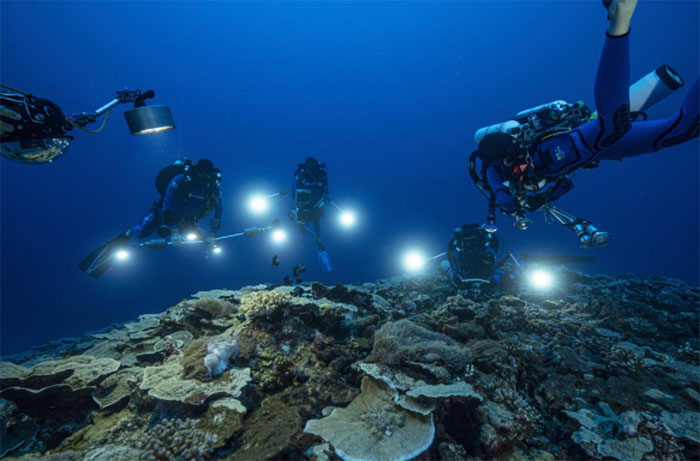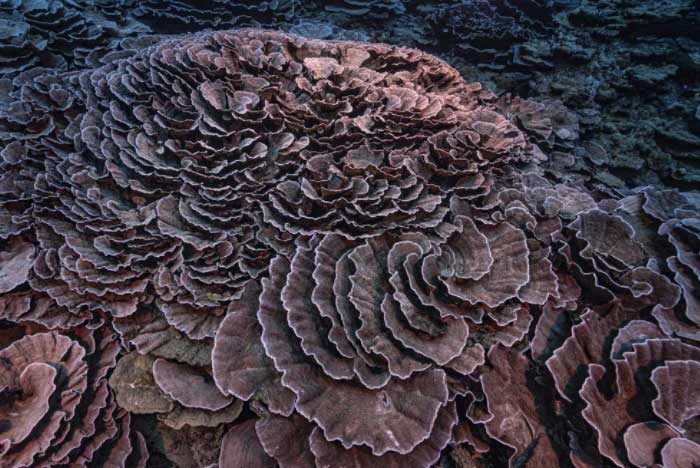Discovering a giant rose-shaped pristine coral reef
Scientists have discovered a rare, rose-like, pristine coral reef that appears to be untouched by climate change or human activities off the southern Pacific island of Tahiti.
On January 19, AP news agency quoted scientists as saying that this is one of the largest coral reefs discovered at such a depth.

Coral reef research team off the coast of Tahiti island, French Polynesia
A few months ago, Laetitia Hedouin - a researcher at the French National Center for Scientific Research in Moorea (French Polynesia) - saw this pristine coral reef for the first time during a scenic scuba diving trip with a sentence. local diving club.
"When I went there for the first time, I thought we needed to study that reef. There's something special about it," said Ms. Hedouin.
What impressed Ms. Hedouin was that the reef looked healthy and was not affected by the bleaching event that caused the mass coral deaths in 2019.
Globally, coral reefs are shrinking dramatically due to environmental pollution. Climate change is also killing coral reefs around the world, and the number will increase if the oceans continue to warm.
Between 2009 and 2018, 14% of corals globally died, according to the Global Reef Monitoring Project's 2020 report.

Coral in the shape of a rose off the coast of Tahiti island of French Polynesia
The newly discovered coral reef stretches about 3km. Unlike the world's mapped reefs, which are relatively shallow, this reef lies deeper, 35 to 70 meters below the seafloor.
The greater the depth, the more dangerous it is for divers. However, the team spent 200 hours diving to photograph, measure and take samples of the reef for research purposes.
Ms. Hedouin said the eruption of an underground volcano in Tonga and caused tsunamis across the Pacific Ocean did not affect the reef.
Ms. Hedouin hopes this study can help experts understand how coral reefs off the Polynesian island of Tahiti have been resilient to climate change and human activities, as well as the role they play. this deeper coral to ocean ecosystems.
The team has scheduled more dives in the coming months to continue learning about the reef.
- The discovery of a giant coral reef measuring 56,000 km2 off Brazil
- 50% of corals worldwide have disappeared
- Map the global coral
- The world's largest coral reef is dying
- Australia implements a system to protect coral reefs
- UNESCO warned of the Great Barrier Reef
- Securing the coral reef ecosystem in Phu Quoc
- The world's largest coral reef will not fall into danger
- Australia strives to protect the world's largest coral reef
- The world's largest coral reefs face the risk of permanent wiping
- Strange sea creatures in the coral reef
- The world's largest coral reef is seriously degraded
 Surprised: Fish that live in the dark ocean still see colors
Surprised: Fish that live in the dark ocean still see colors Japan suddenly caught the creature that caused the earthquake in the legend
Japan suddenly caught the creature that caused the earthquake in the legend A series of gray whale carcasses washed ashore on California's coast
A series of gray whale carcasses washed ashore on California's coast Compare the size of shark species in the world
Compare the size of shark species in the world